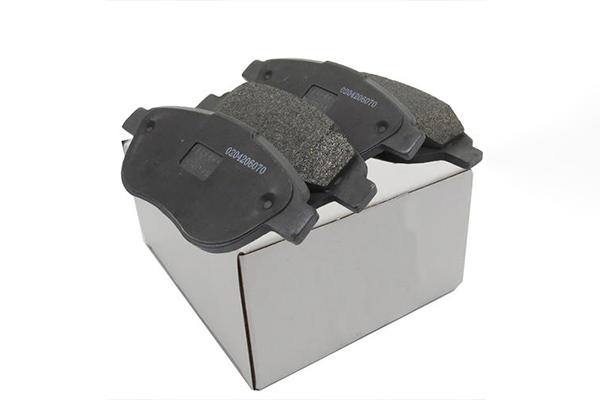In the cars we use daily, braking should be one of the most commonly used functions. However, as mechanical parts, we will more or less encounter other problems such as brake pads, such as noise, jitter, smell, smoke... etc. But some people say "My brake pads are burnt." Is it strange? This is the so-called "carbonization" of brake pads! First of all, the automobile brake pad manufacturer will introduce what is the "carbonization" of the brake pads, and what harm will it bring? Let's take a look!
The friction components of the brake pads are formed by high-temperature reaction die-casting of various metal fibers, organics, resin fibers and adhesives. Automobile braking is carried out by the friction between the brake pads and the brake disc, and friction inevitably generates heat energy. When the temperature reaches a certain value, we will find that the brake is smoking, accompanied by a pungent smell similar to burning plastic.
In this issue, we will introduce the introduction and hazards of car brake pad carbonization, and the next issue will explain the causes and solutions of Yuda brake pad carbonization. If you are interested, let's watch it together!
When the temperature exceeds the high temperature critical point of the brake pad, the brake pad contains phenolic resin, styrene-butadiene masterbatch, stearic acid and other carbon-containing organics. Hydrogen and oxygen are removed in the form of water molecules, and in the end only a small amount of phosphorus, carbon, silicon and other mixtures are left! It looks gray-black after carbonization. In other words, it is "anxious."

So what adverse effects or even harms will be produced in this case? There are roughly the following points.
1. As the car's brake pads are carbonized, the friction material of the brake pads will become powdery and fall quickly until it is completely burned out, at which time the braking effect will gradually weaken.
2. The brake disc is oxidized under high temperature (that is, our common brake pads are blue-purple) and deform, which will cause vibration and abnormal noise in the rear of the car during high-speed braking.
3. The high temperature causes the deformation of the brake cylinder seal and the temperature of the brake oil increases. In severe cases, the brake cylinder may be damaged and unable to brake.